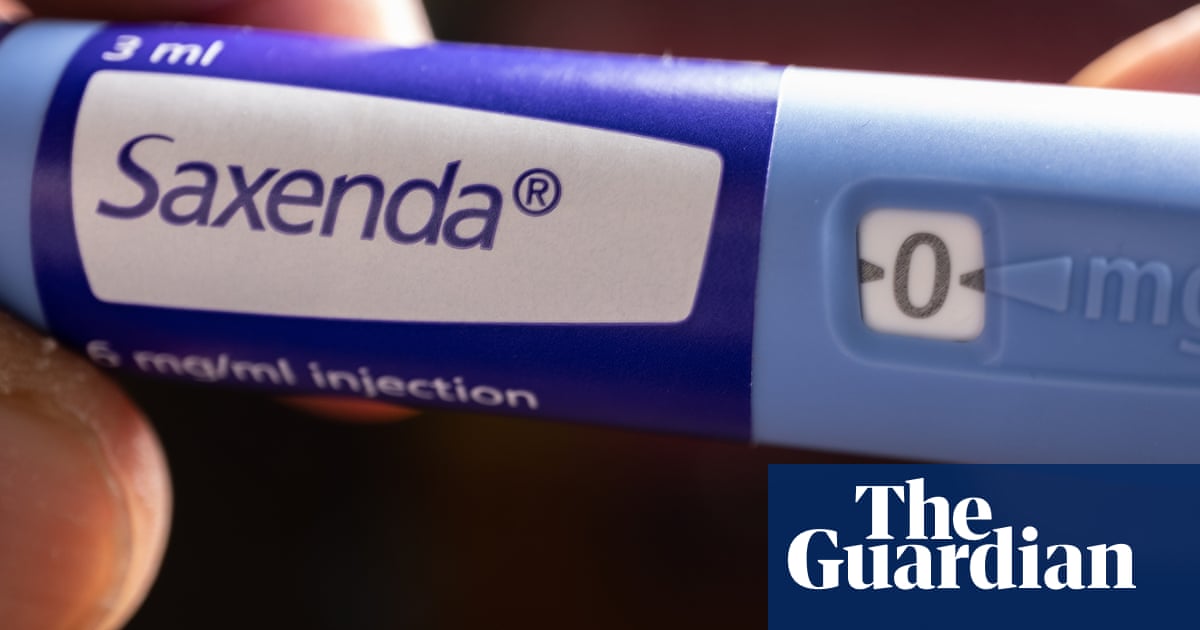Weight-loss jabs could almost halve the risk of obesity-related cancers, a landmark study suggests.
Cancer experts said the findings were “transformational” and could herald a “whole new era of preventive cancer medicine”.
Obesity is associated with13 different cancers. While losing weight reduces that risk, scientists have calculated weight-loss injections have a bigger protective effect over and above shedding the kilos.
Researchers in Israel studied 6,000 adults with no prior history of cancer, who either underwent bariatric surgery or took glucagon-like peptide-1 receptor agonists (GLP-1RAs) liraglutide (Saxenda), exenatide (Byetta) or dulaglutide (Trulicity). The drugs work by mimicking the GLP-1 hormone in the body, which lowers blood sugar levels and makes people feel fuller for longer.
Although those who had bariatric surgery lost around double the weight of those on weight-loss medication, thestudy, presented at the European Congress on Obesity in Malaga, Spain, and published in The Lancet’s eClinicalMedicine, found the reduction in cancer risk was broadly the same.
Bariatric surgery reduces the risk of cancer by 30-42%, the researchers said. Therefore, accounting for the relative advantage of surgery in reducing patients’ weight, the authors found weight-loss drugs were more effective at preventing obesity-related cancer.
“The protective effects of GLP-1RAs against obesity-related cancers likely arise from multiple mechanisms, including reducing inflammation,” said co-lead author Prof Dror Dicker from Hasharon Hospital, Rabin Medical Center, Petah Tikva, Israel.
Newer drugs could prove even more beneficial, he added. “New generation, highly potent GLP-1RAs with higher efficacy in weight reduction may convey an even greater advantage in reducing the risk of obesity-related cancers, but future research is needed to make sure these drugs do not increase the risk for non-obesity-related cancers.”
A separatestudy, presented at the conference and published in New England Journal of Medicine, directly compared weight-loss jabs and found patients taking Mounjaro lost about 50% more weight than those taking Wegovy. Patients on Mounjaro typically saw a 20.2% drop in body weight at the end of the trial compared with 13.7% with Wegovy.
Responding to the findings, Prof Mark Lawler, an internationally renowned cancer research expert from Queen’s University Belfast, said while this was an observational study and caution was needed interpreting the results, the results were very exciting.
“We already know bariatric surgery cuts obesity-related cancer risk by about a third; these data suggest target GLP-1s may cut that risk by nearly 50% – an approach that would be transformational in preventing obesity-related cancer.
“Biologically, this makes sense, as targeting GLP-1 dampens down inflammation, one of the hallmarks of cancer.
“While further work is required on how it works, these data raise the intriguing possibility that a GLP-1 jab could prevent multiple cancers in the general population, including common cancers like breast and colorectal, and difficult to treat cancers like pancreatic and ovarian. This work could herald a whole new era of preventive cancer medicine.”
Prof Jason Halford, former president of the European Association for the Study ofObesityand head of psychology at Leeds University, said the drugs should also be tested in patients with newly diagnosed cancers to see if they boosted survival chances.
He added the drugs had “the potential to be a new dawn. And it’s not just prevention, weight management in people recently diagnosed with cancer is also critical in terms of outcomes. That would be the next thing to look at. More and more cancers are being associated with obesity.”
A team of 54 international experts from 12 different countries issued a joint statement at the conference, calling for weight-loss drugs to be trialled as a priority for cancer prevention. As a result, a UK team of scientists, based at the University of Manchester and funded by Cancer Research UK, are planning a large-scale clinical trial involving tens of thousands of patients, which they hope to get under way within “three to five years”.
Dr Matthew Harris, at the Manchester Cancer Research Centre, said weight-loss jabs “provide genuinely fantastic weight loss, and may provide an intervention that could be delivered on a population-scale, where we have not been able to achieve this before”.
